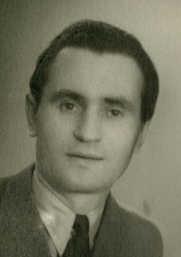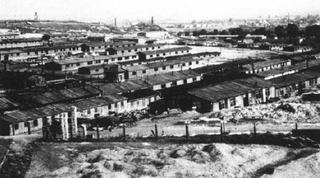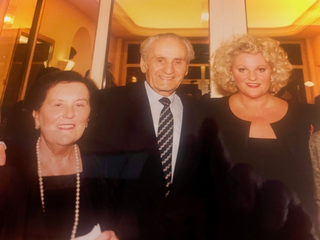Naftuli Leib (Ferdinand) Lichter

Personalia
Born:
Died:
Profession:
KZ Number:
Curriculum Vitae
Naftuli Leib 'Tuli' Lichter was born in Lemberg [today: Lviv in Ukraine] as the legitimate son of Leib and Rachel Lichter. One year after his birth, the Austro-Hungarian dual monarchy loses the First World War and Lviv is annexed to Poland.
With the capitulation of Poland, Naftuli Lichter is arrested and taken to a labor camp near Königsberg [today: Kaliningrad in the Soviet Union]. When the Krakow ghetto was opened, he was taken there. When the Krakow ghetto was dissolved, he was deported to the Płaszów concentration camp on February 23, 1943 [Note: The conditions and circumstances in the Płaszów concentration camp under its camp commandant Amon Göth were made into Steven Spielberg's 1993 film 'Schindler's List']. From there, he was transferred to the Flossenbürg concentration camp on October 16, 1944. As the US Army approached in April 1945, the concentration camp was taught and Naftuli Lichter was deported to Theresienstadt concentration camp

He then moved to Budapest, where he met Edith Spivak, who had also escaped the horrors of the German concentration camps. They married in 1946 and opened a textile store.
After the Communist takeover in Hungary, the Jewish family had to flee and moved to Vienna. At first Edith and Naftuli Lichter, who changes his first name to 'Ferdinand', consider emigrating to Israel or Australia, but then find their home in Vienna and stay. He first works in a chemical factory and then in a chocolate factory. On October 24, 1949, their daughter Marika Mirjam Rachel Lichter was born.
In 1954, Ferdinand Lichter and his wife founded a textile company in Vienna. From 1980, Ferdinand Lichter also took over medical technology agencies in Hungary and Poland.
You don't need a contract with a decent person, it doesn't help with an indecent one.
Her daughter is the famous singer, actress and music manager Marika Lichter. Lichter, who performs on national and international stages and on television, is also known far beyond Austria's borders for her social commitment. In her play 'I have (no) homeland', she revisits the story of her parents. In it, she explores the concepts of 'home' and 'home' as well as the experience of Jewish life. It consists of a mixture of stories, quotes and songs, ranging from pop hits to arias and political songs, and addresses the feeling of being a stranger.

Places
Residence:
Persecution:
Citations
Arolsen Archives
Marika Lichter, Privat
Wikipedia
